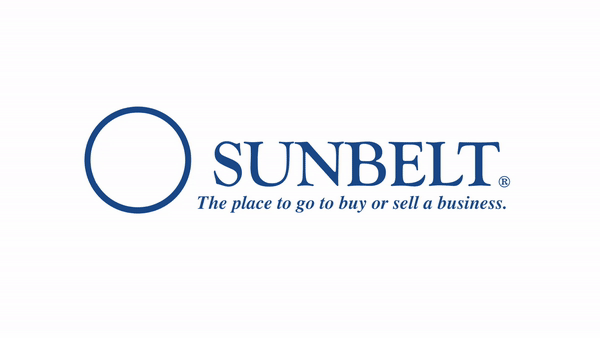Why Owner Flexibility Matters in Selling a Business
- Dan Elliott

- Jan 29, 2024
- 3 min read

Selling a business is often complex and challenging, requiring careful planning and strategic decision-making. One key attribute that can significantly impact the success of the sale is owner flexibility. In this article, we will explore why owner flexibility matters in selling a business and provide strategies for improving flexibility in business transactions.
Flexibility is crucial in facilitating smooth negotiations and ensuring a successful business sale. Here are some reasons why owner flexibility matters:

Building Trust and Rapport
Being flexible as an owner helps to build trust and rapport with potential buyers. It demonstrates a willingness to work together and find mutually beneficial solutions. Buyers are more likely to engage with owners who exhibit openness and adaptability throughout the negotiation process.
Overcoming Obstacles
Obstacles and challenges are almost inevitable during the business sale process. By maintaining flexibility, owners can navigate these hurdles more effectively. Flexibility enables creative problem-solving and the ability to adapt to changing circumstances, increasing the chances of overcoming obstacles and reaching a successful outcome.

Maximizing Value
Flexibility in negotiating terms and conditions can help maximize the value of the business sale. Owners who are open to compromise and reasonable demands are more likely to attract potential buyers and secure favorable deals. Adopting a flexible approach can lead to a win-win situation where both parties feel satisfied with the final agreement.
Maintaining Focus on the Ultimate Goal
Throughout the business sale process, owners must focus on the ultimate goal of selling a business. This requires prioritizing the long-term objective over minor disputes or disagreements. A flexible owner understands that certain sacrifices may be necessary to achieve the desired outcome.
Strategies for Improving Flexibility in Business Transactions
Now that you understand why owner flexibility matters in selling a business let's explore some strategies for enhancing owner flexibility during the transaction:
1. Adopt a Buyer-Centric Perspective
To cultivate flexibility, owners should strive to see the situation from the buyer's perspective. Understanding the buyer's motivations, concerns, and objectives can help owners make informed decisions and tailor their approach accordingly. This buyer-centric mindset fosters cooperation and collaboration throughout the negotiation process.
2. Be Open to Compromise
Flexibility requires a willingness to compromise on certain aspects of the deal. Owners should identify their non-negotiables but be ready to make reasonable concessions in other areas. This flexibility demonstrates a commitment to finding common ground and facilitates progress towards a successful sale.
3. Seek Professional Guidance
Consulting with a Business Broker can guide you in navigating the complexities of the business sale process. These professionals have extensive experience negotiating deals and can help owners develop strategies to enhance flexibility and maximize the value of the sale.
4. Maintain Goodwill and Professionalism
Even in the face of challenges or disagreements, it is essential to maintain goodwill and professionalism. Showing respect and courtesy to potential buyers can significantly contribute to building positive relationships. A flexible owner understands the importance of maintaining a positive reputation throughout the transaction.
Losing is Winning
Sometimes, letting go of certain demands or making compromises may seem like a loss. However, when selling a business, it's essential to realize that losing small battles can sometimes lead to winning the larger war. Maintaining flexibility and focusing on the ultimate goal increases the chances of achieving a successful business sale. Embrace the power of flexibility and consult with a trusted professional to guide you through the process.
FAQs About Owner Flexibility in Selling a Business
How does owner flexibility impact negotiations?
Owner flexibility in negotiations allows the business owner to discover different options and creative solutions that meet their financial goals and the buyer's requirements. It enables owners to adapt their strategy, consider alternative deal structures and bridge gaps to reach mutually beneficial agreements.
What are the benefits of owner flexibility for sellers?
Owner flexibility offers several benefits for sellers. It allows them to control the sale process, respond to changing market dynamics, and leverage multiple offers. Flexibility enables sellers to tailor the transaction to their specific needs, whether regarding the sale price, terms, or transition period, ultimately increasing the likelihood of achieving their objectives.
Can owner flexibility impact the value of the business?
Yes, owner flexibility can impact business value. By being adaptable and open-minded, owners can identify opportunities to enhance the business's value, address potential concerns, and attract more qualified buyers. Negotiation flexibility may result in more favorable terms and a higher valuation for the business.
Are there risks with owner flexibility?
While owner flexibility can be beneficial, it also entails certain risks. Owners need to strike a balance between their objectives and the buyer's requirements. It's important to ensure that any compromises made do not hinder the business's long-term success or negatively affect its value. Additionally, being too flexible without clear boundaries may lead to unfavorable outcomes or missed opportunities.
How does owner flexibility affect the due diligence process?
Owner flexibility can impact the due diligence process when flexible owners cooperate and provide the information and documentation. This openness and transparency can foster trust between the buyer and seller, streamline the due diligence process, and contribute to a smoother transaction overall. However, owners must maintain confidentiality and protect sensitive business information throughout due diligence.





Comments